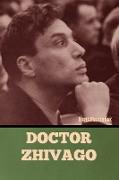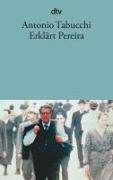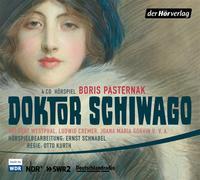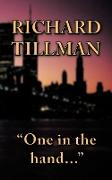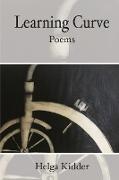- Start
- Doctor Zhivago
Doctor Zhivago
Angebote / Angebote:
Doctor Zhivago is a novel by Boris Pasternak, first published in 1957 in Italy. The novel is named after its protagonist, Yuri Zhivago, a physician and poet, and takes place between the Russian Revolution of 1905 and World War II.
Owing to the author's independent-minded stance on the October Revolution, Doctor Zhivago was refused publication in the USSR. At the instigation of Giangiacomo Feltrinelli, the manuscript was smuggled to Milan and published in 1957. Pasternak was awarded the Nobel Prize for Literature the following year, an event that embarrassed and enraged the Communist Party of the Soviet Union.
The novel was made into a film by David Lean in 1965, and since then has twice been adapted for television, most recently as a miniseries for Russian TV in 2006. The novel Doctor Zhivago has been part of the Russian school curriculum since 2003, where it is read in 11th grade.
Edmund Wilson wrote of the novel: "Doctor Zhivago will, I believe, come to stand as one of the great events in man's literary and moral history". V. S. Pritchett wrote in the New Statesman that the novel is "[t]he first work of genius to come out of Russia since the revolution." When the novel came out in Italian, Anders Österling, the then permanent secretary of the Swedish Academy which awards the Nobel Prize in Literature, wrote in January 1958: "A strong patriotic accent comes through, but with no trace of empty propaganda... With its abundant documentation, its intense local color and its psychological frankness, this work bears convincing witness to the fact that the creative faculty in literature is in no sense extinct in Russia. It is hard to believe that the Soviet authorities might seriously envisage forbidding its publication in the land of its birth." Some literary critics "found that there was no real plot to the novel, that its chronology was confused, that the main characters were oddly effaced, that the author relied far too much on contrived coincidences." Vladimir Nabokov, who had celebrated Pasternak's books of poetry as works of "pure, unbridled genius", however, considered the novel to be "a sorry thing, clumsy, trite and melodramatic, with stock situations, voluptuous lawyers, unbelievable girls, romantic robbers and trite coincidences." On the other hand, some critics praised it for being things that, in the opinion of translator Richard Pevear, it was never meant to be: a moving love story, or a lyrical biography of a poet in which the individual is set against the grim realities of Soviet life. Pasternak defended the numerous coincidences in the plot, saying that they are "traits to characterize that somewhat willful, free, fanciful flow of reality." In response to criticism in the West of his novel's characters and coincidences, Pasternak wrote to Stephen Spender:
Whatever the cause, reality has been for me like a sudden, unexpected arrival that is intensely welcome. I have always tried to reproduce this sense of being sent, of being launched... there is an effort in my novels to represent the whole sequence (facts, beings, happenings) as a great moving entity... a developing, passing, rolling, rushing inspiration. As if reality itself had freedom of choice... Hence the reproach that my characters were insufficiently realized. Rather than delineate, I was trying to efface them. Hence the frank arbitrariness of the "coincidences." Here I wanted to show the unrestrained freedom of life, its very verisimilitude contiguous with improbability. (wikipedia.org)
Folgt in ca. 10 Arbeitstagen
